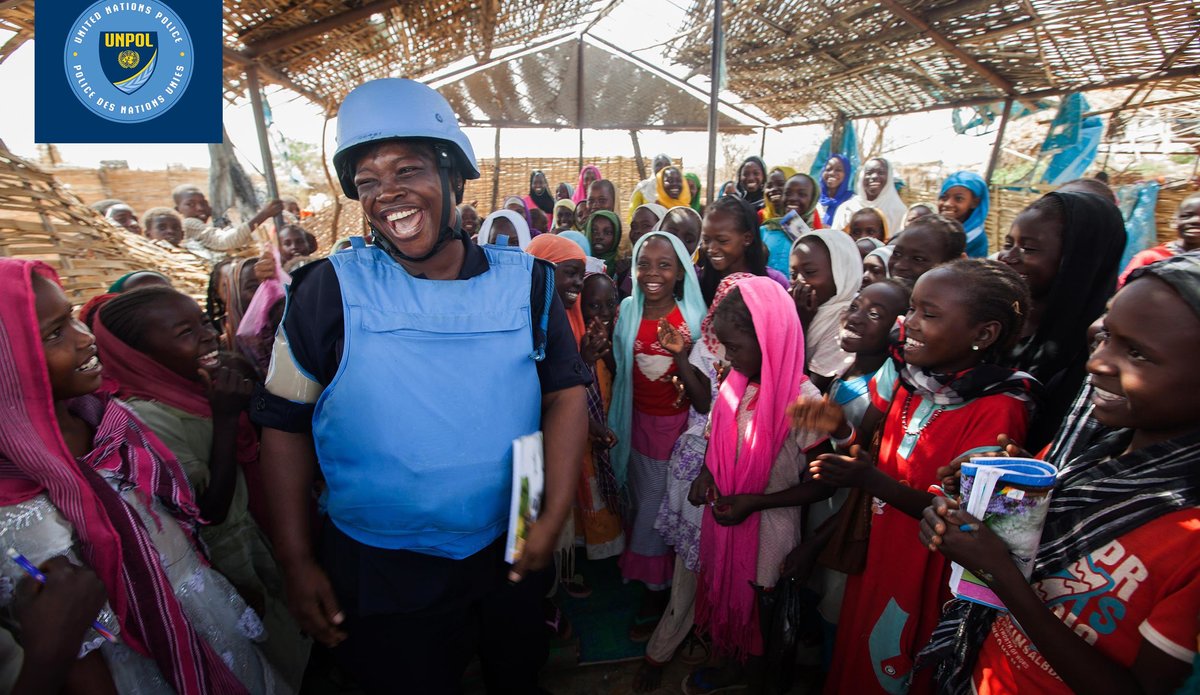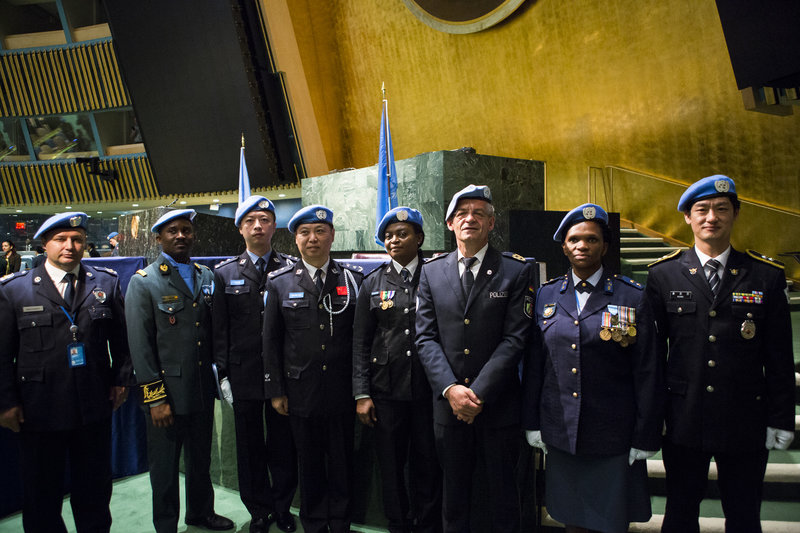Working in United Nations peace missions gives United Nations police officers an opportunity to meet colleagues from many different backgrounds and cultures and to learn from them. Police peacekeepers participate in different mission trainings, learning the UN’s principles, standards and approaches in international police peacekeeping.
Police officers often work closely with police from the nation where the mission is located, advising, mentoring and assisting them in their duties. By doing so, they expand their thinking about how to approach police service and often bring useful knowledge back to their service when they return home.
Career benefits
Becoming a police peacekeeper is for a finite period of time, making it an exceptional opportunity for a national police career. Many senior members of the international policing community consider it beneficial that officers have had an international posting.
Serving the United Nations in the pursuit of peace is also an opportunity for police officers to help populations in need following a crisis or war.
Seconded police peacekeepers are reimbursed for their service by their government, the United Nations or a combination of the two, depending on whether they join as Individual Police Officers (IPO), member of a Formed police Unit (FPUs) or as a temporary UN staff on a professional post.
Benefits for police contributing countries
The skilled and experienced police officers that are needed for deployment with United Nations Police are valuable assets to their national police services and equally needed at home. Police-contributing countries see clear benefits for their local communities when their police officers return from UN missions, bringing new approaches, useful knowledge and international exposure to their national policing culture.
In addition, while deployed to the United Nations, police officers will often be helping to make their own societies safer, and more secure. For example, officers deployed to the UN Mission in Liberia (UNMIL) or the Integrated Peacebuilding Office in Guinea-Bissau (UNIOGBIS) may help strengthen the national police to disrupt drug supplies that could reach their home country otherwise.
The Permanent Representative of Niger, Ambassador Abdallah Wafy, previously Deputy Special Representative of the Secretary-General for the Rule of Law in MONUSCO, said in his speech at the United Nations Chiefs of Police Summit in 2016:
“As a former Inspector General of Police, my message to you is this: Please recognise the benefits for your organisations of having your police officers serve in UN missions, not only to the individual officer, but also to your service and to the country concerned”.
Previous UN police officers that have been promoted to the highest rank in their country after serving United Nations police include the Inspector General of the Ghana Police Service, Inspector General of Police Mohammed Ahmed Alhassan.


